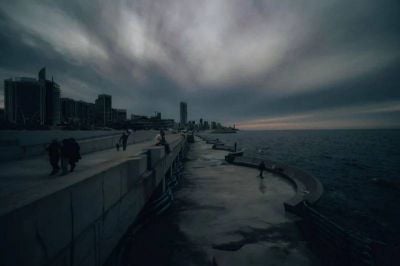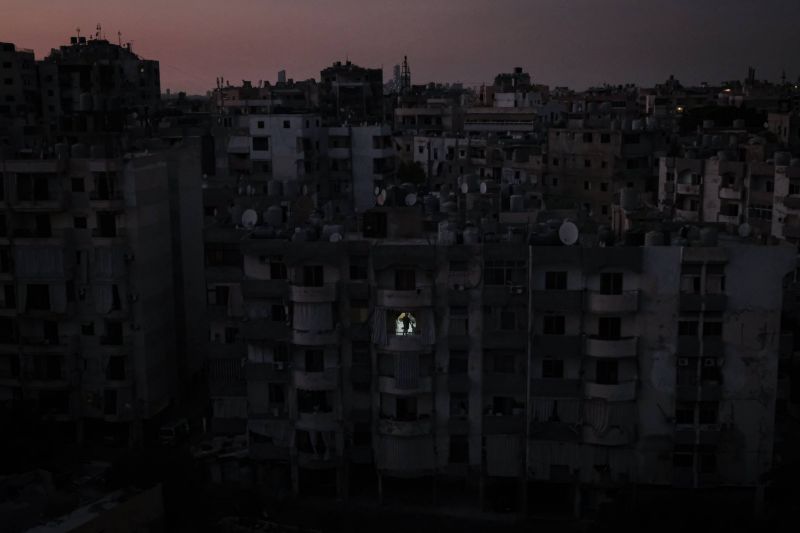
A view of Beirut at dusk. (Credit: João Sousa/L'Orient Today/File photo)
Oct. 16, 2023: I stand alongside 300 people at the Saint George Cathedral in central Beirut, across the street from Martyrs’ Square. The eulogy of a priest and the adhan from the mosque next door are in perfect sync. I’m there to pay respects to Giselle Khoury, the celebrated journalist who has just died after a battle with cancer.
Down the street, a garden sits dedicated to her late husband and fellow journalist, Samir Kassir, who was assassinated 18 years ago.
Meanwhile, 280 kilometers south, more killing takes place. Israel has rained down bombs on Gaza, killing thousands of people, while the specter looms of yet a new front in Lebanon. It has been 10 days of pain, anger, disbelief and fear.
Funerals are always sad occasions, but at Giselle’s, it feels like I’m mourning more than just her.
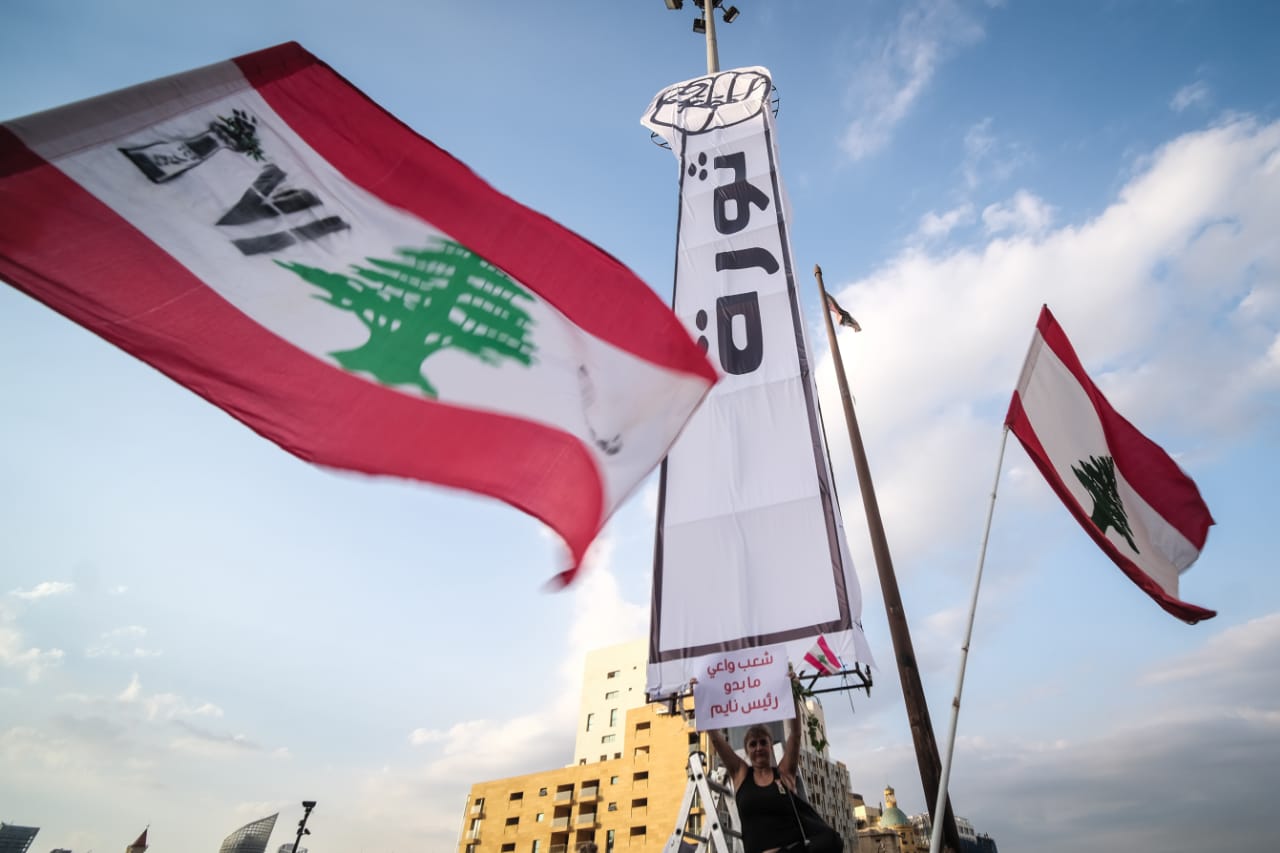 An Oct. 17 anniversary protest in downtown Beirut, 2022. (Credit: João Sousa/L'Orient Today)
An Oct. 17 anniversary protest in downtown Beirut, 2022. (Credit: João Sousa/L'Orient Today)
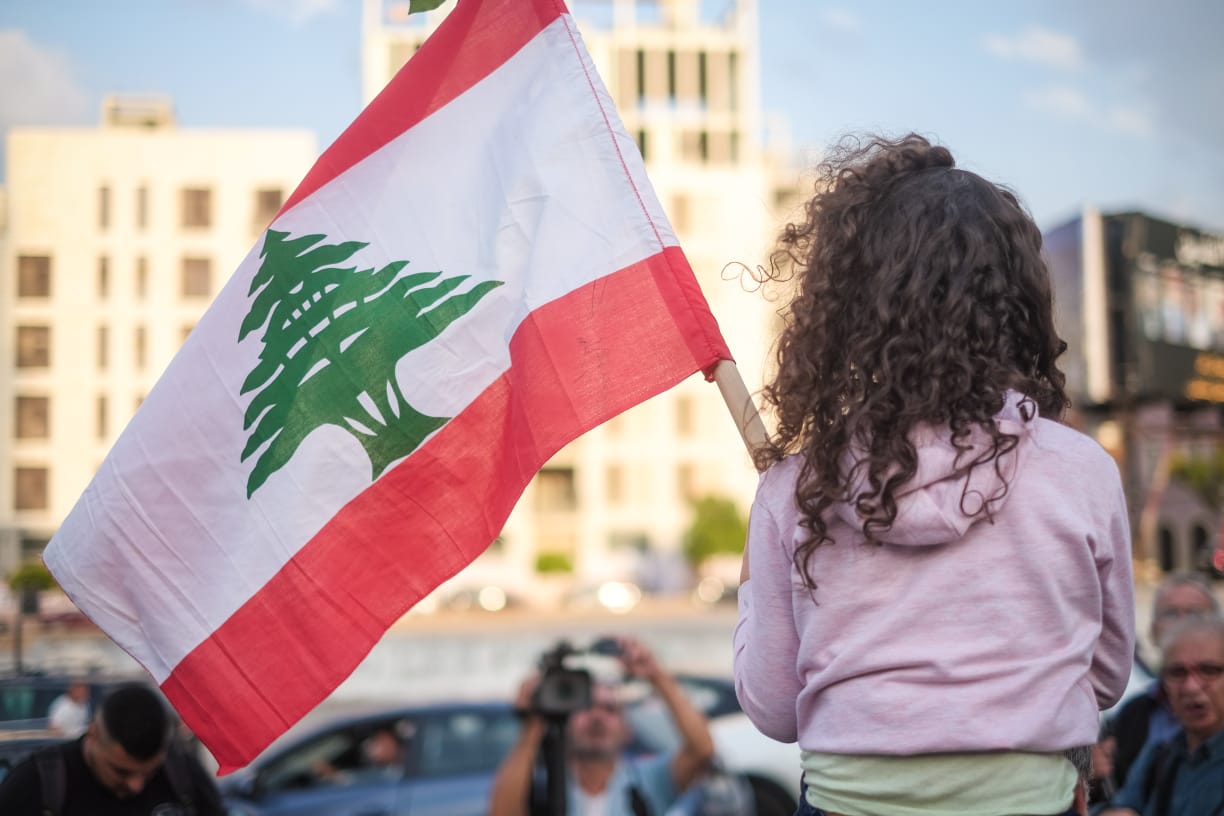 An Oct. 17 anniversary protest in downtown Beirut, 2022. (Credit: João Sousa/L'Orient Today)
An Oct. 17 anniversary protest in downtown Beirut, 2022. (Credit: João Sousa/L'Orient Today)
Oct. 17, 2019: What begins as an unassuming Thursday ends, somehow, with Lebanon's streets being overtaken by thousands of people, united in their demands for reform.
The next morning, social media erupts with mass calls to overtake public squares. The ripple grows into an unforgiving wave.
In Furn al-Shubbak, where I study Interior architecture, I skip my morning class and push everyone else to skip theirs, too. It's an easy sell. Our art school campus is not exactly a breeding ground for politics, but soon enough, a hundred students are convening at the gates to march the two or three kilometers across Beirut toward Martyrs’ Square. First to Sagesse, then Université Saint-Joseph, Huvelin, all stops we made along the way to meet with other student groups.
Like all rivers, we coalesce into a sea of people.
My generation was long alienated by strongmen rulers and their tired politics. Now, it is our turn to take the reins.
Fifteen years of war, followed by 15 years under pseudo-occupation, and another 15 in a state of steady decline. Lebanese citizens have weathered a relentless storm of hardships.
To me, the breakthrough feels like a long-awaited catharsis, a release of pent-up anger that has been building for far too long. It is spontaneous, organic, righteous.
What follows is nothing short of euphoric – at least for a time.
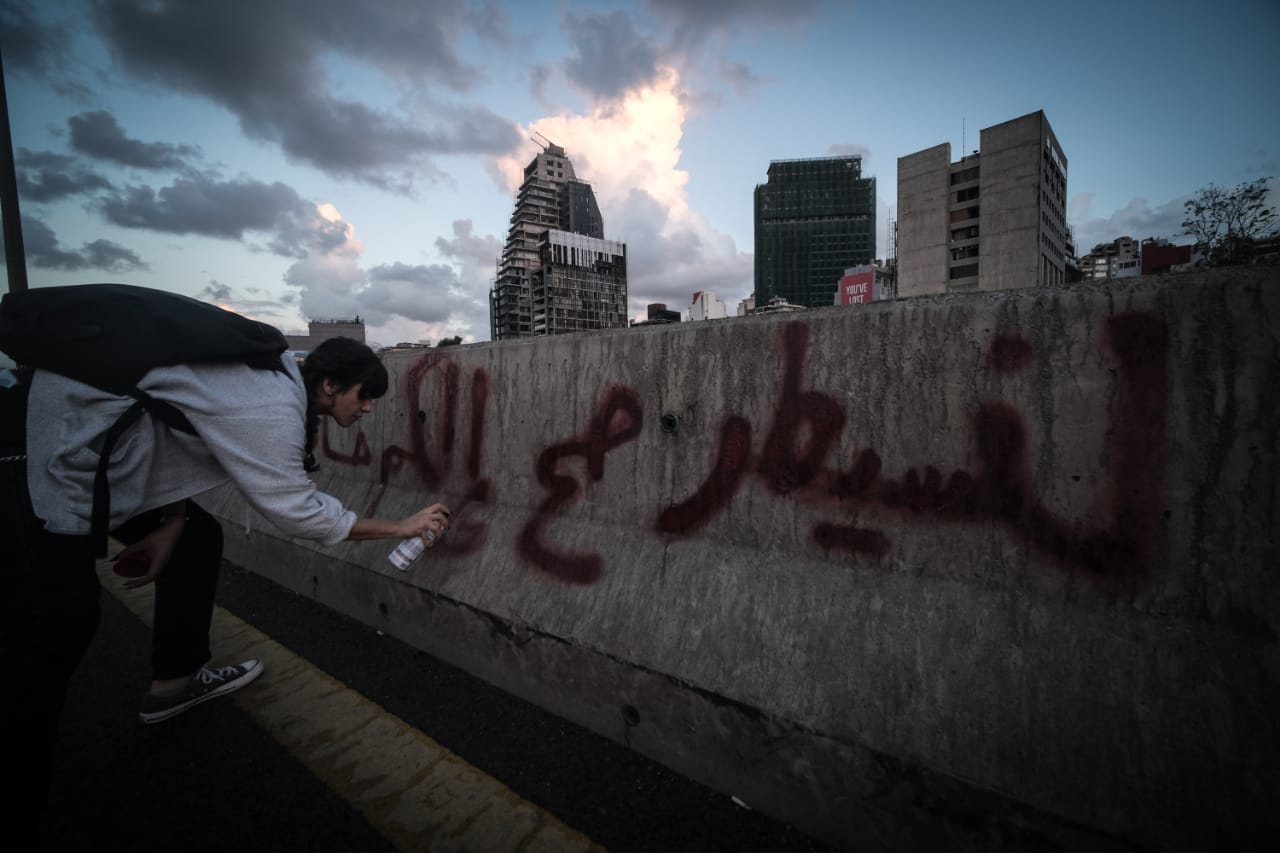 An Oct. 17 anniversary protest in downtown Beirut, 2021. (Credit: João Sousa/L'Orient Today)
An Oct. 17 anniversary protest in downtown Beirut, 2021. (Credit: João Sousa/L'Orient Today)
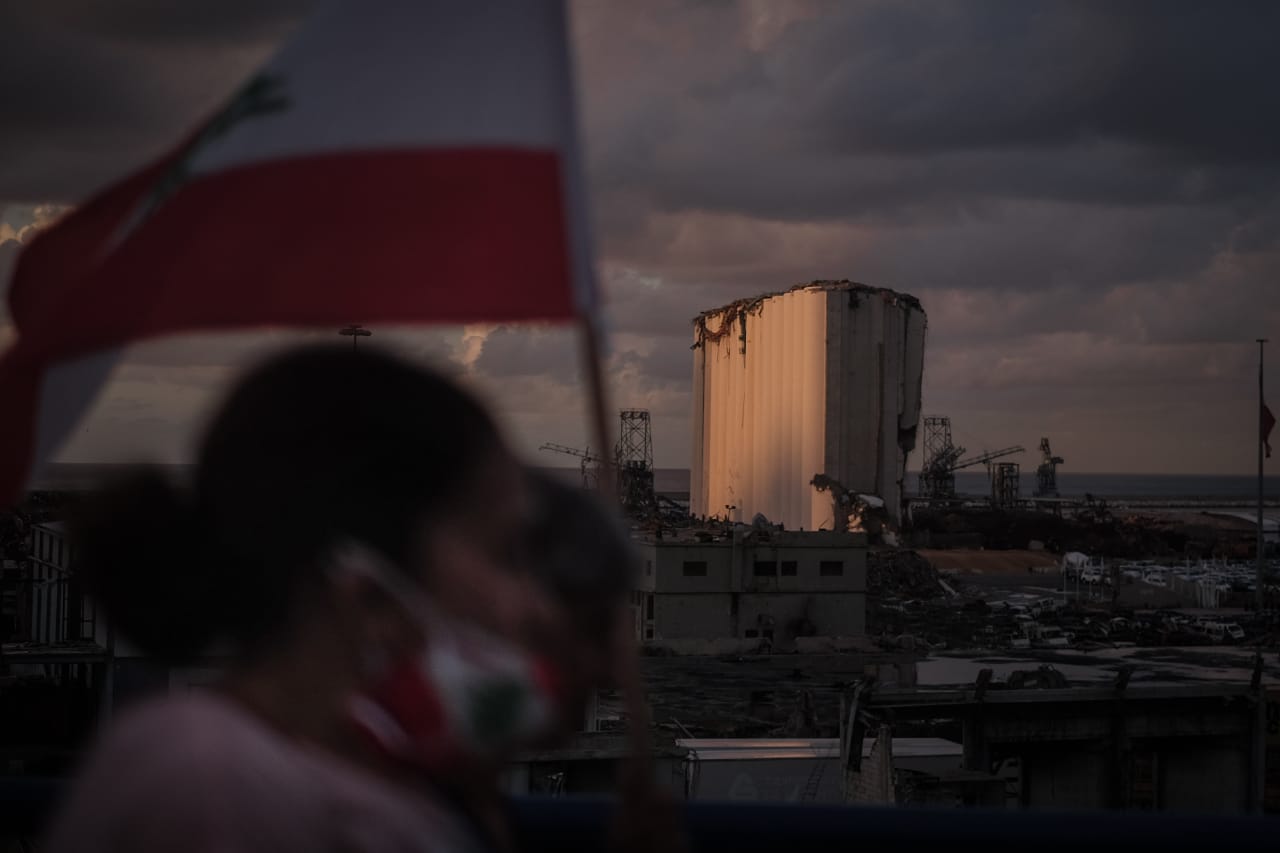 An Oct. 17 anniversary protest in Beirut, 2021. (Credit: João Sousa/L'Orient Today)
An Oct. 17 anniversary protest in Beirut, 2021. (Credit: João Sousa/L'Orient Today)
My early memories of Lebanon resemble those of that first Oct. 17; centered around Martyrs’ Square. With the television fixed on news channels, I could see Beirut from a reporter’s birds-eye view, submerged in red, white and green, and defying much greater forces. Overjoyed, my father would explain what the “Syria out” banners meant as simply and enthusiastically as he could. I was 12 years old.
Syria did eventually withdraw, in April 2005. But even then, Beirut continued to drown in pain. At school, I failed a biology test because my mom took “too long” to grieve over Pierre Gemayel, whom she adored. I was there when the TV announced his death. My biology book in her hand, she threw it away and collapsed with tears. Twelve more bombs and killings would take place all the way through 2013.
Two full decades have passed since then. Lebanon, now a century old, feels like it is in its final chapter. And I, having just turned 30, must learn how to outlive my own country. But before that, I must also learn how to survive it.
In the immediate aftermath of Oct. 17, Lebanon was hit by an economic collapse. The currency devalued, prices exploded, incomes stagnated. The covid pandemic trapped financially vulnerable families in their homes. The Beirut port blast shattered yet more homes, killing anyone from dock workers to nearby restaurant staff to people simply sitting in their apartments.
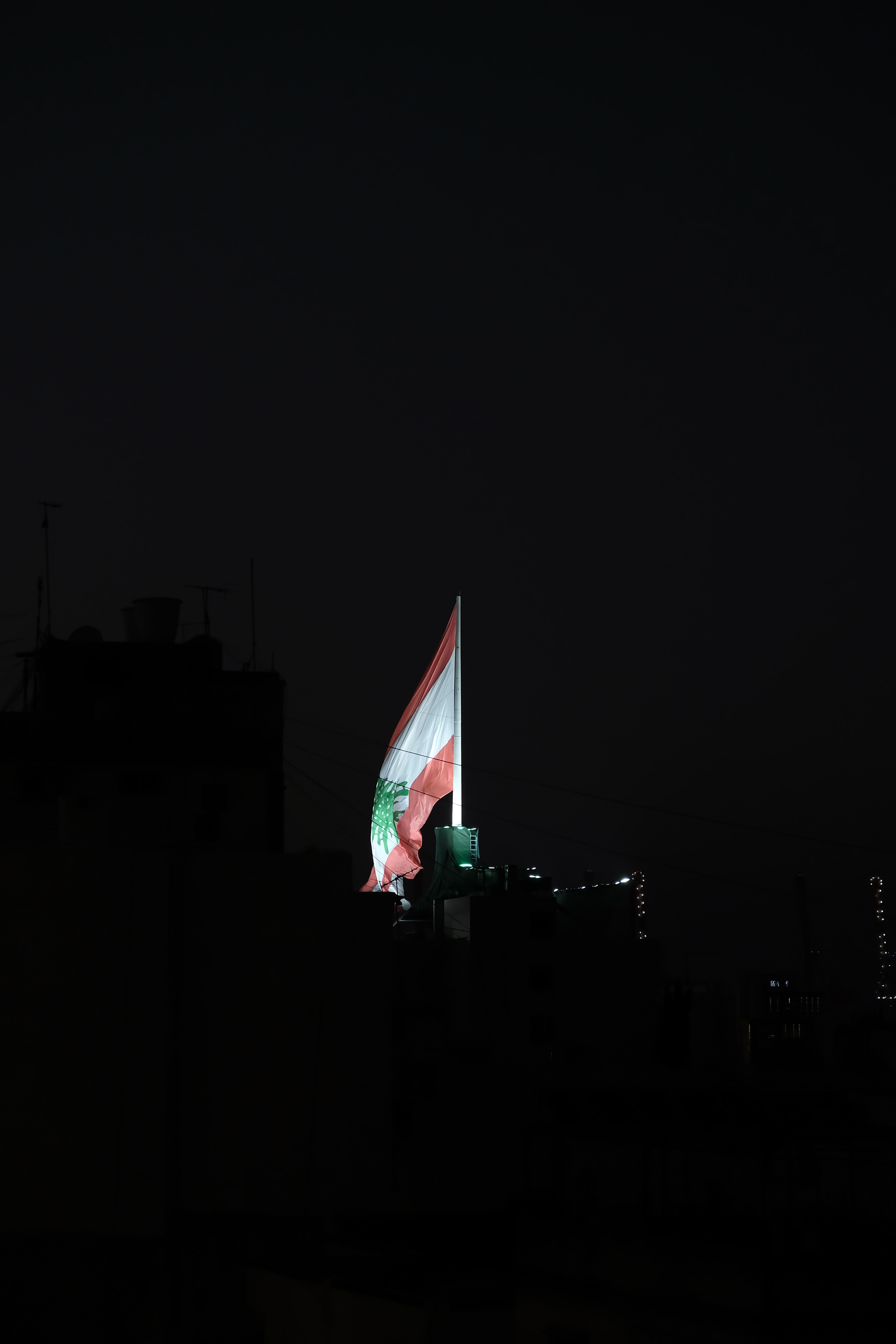 The Lebanese flag, seen in Beirut at nighttime. (Credit: João Sousa/L'Orient Today/File photo)
The Lebanese flag, seen in Beirut at nighttime. (Credit: João Sousa/L'Orient Today/File photo)
Aug. 4, 2021: It’s a year after the blast, and I’m reaching my breaking point. Power outages last for most of the day. My home at the time, semi under-ground, is scorching in the heat of summer.
I’m unemployed, on a couch at dusk, doom-scrolling the one-year anniversary memories people upload to social media. There is no power to turn on the TV, which sits dormant while the food in my warm fridge goes bad.
My single, working mother, in her mid-50s, is already worn out by a difficult life. The war took her father and ended her childhood when she was just 12, and she’s been working for her, and later my, survival ever since. Things would soon turn around for me, but in the moment, summer feels like a funeral for a life I haven't yet begun.
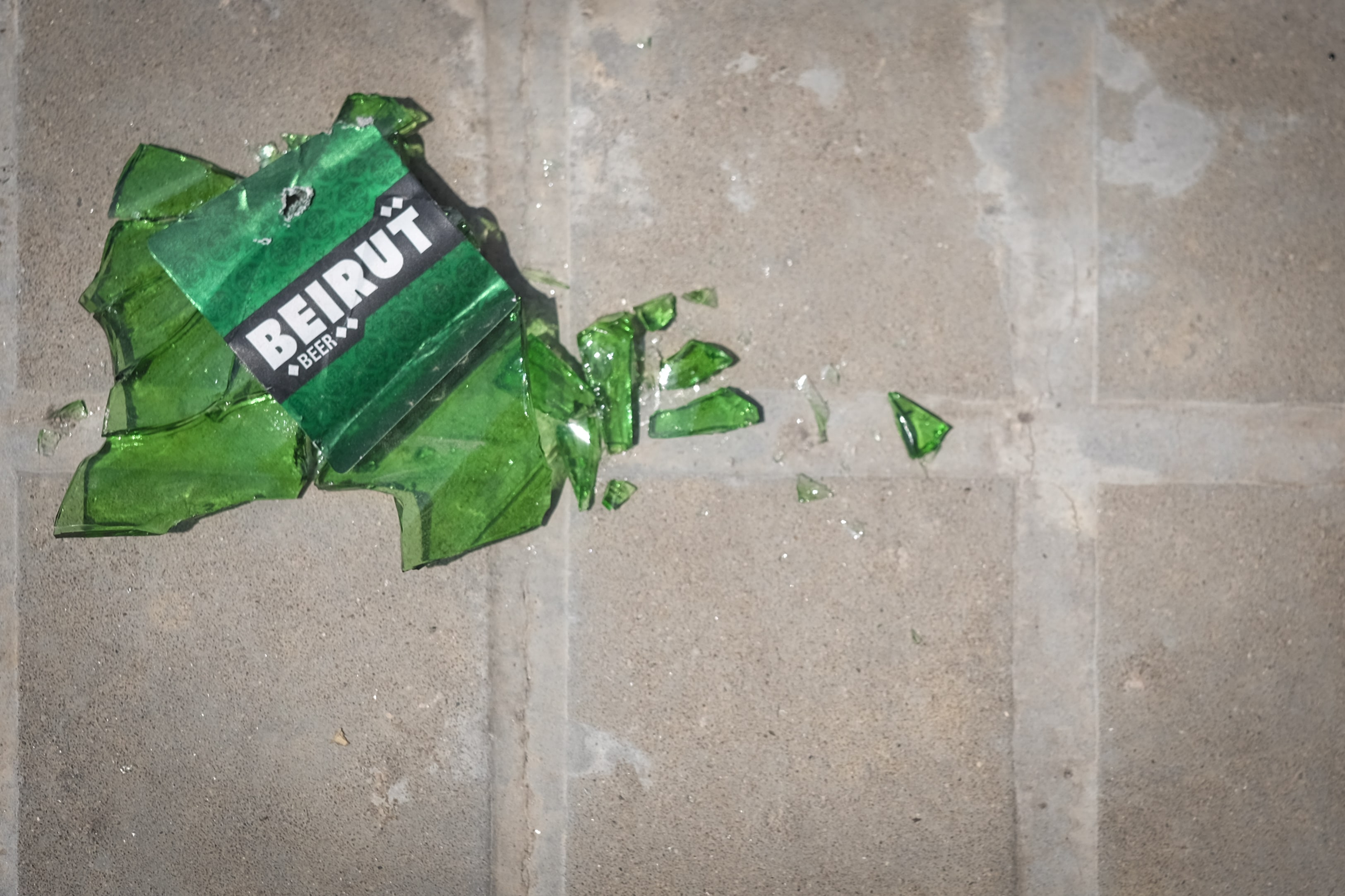 A broken beer bottle on a street in Beirut. (Credit: João Sousa/L'Orient Today/File photo)
A broken beer bottle on a street in Beirut. (Credit: João Sousa/L'Orient Today/File photo)
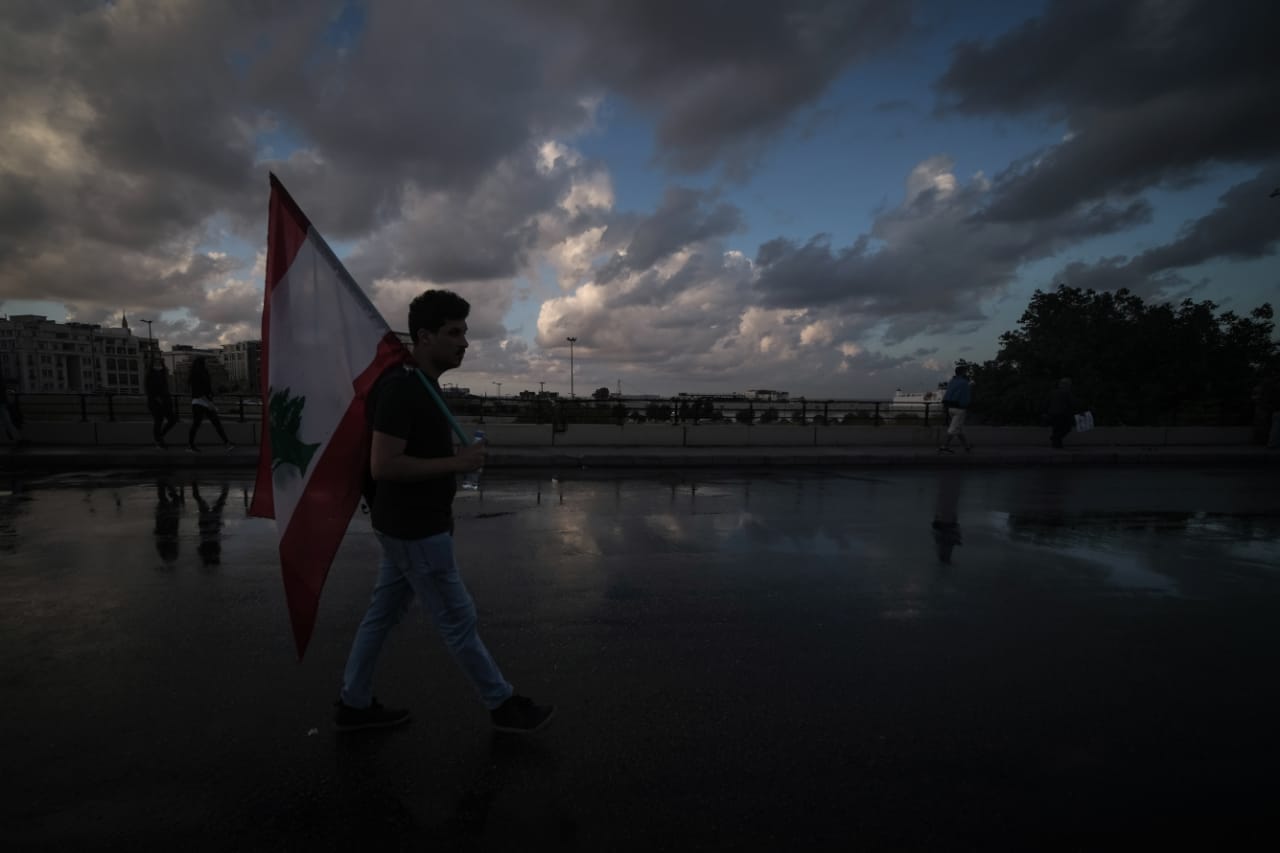 An Oct. 17 anniversary protest in Beirut, 2021. (Credit: João Sousa/L'Orient Today)
An Oct. 17 anniversary protest in Beirut, 2021. (Credit: João Sousa/L'Orient Today)
Oct. 16, 2023: Giselle’s funeral, like her late husband's, is unfurling in the eye of the same persistent storm. The war in Palestine is threatening to upend Lebanon’s fragile existence, and with it, our lives, safety, everything the mourners in presence have been fighting for.
What have they lost? March 14 saw demands for Assad’s exit from Lebanon. Oct. 17 wanted to dismantle the system that inherited Syria’s role. Aug. 4 brought two movements together in tragedy, anguish and mountains of shattered glass.
The fight can be as big as preventing war and as small as protecting drag, but the common thread persists. On the streets, and through my activism, I fight for Lebanon’s sovereignty, but also for the independence of my mind and autonomy of my body. Has it all been worth the struggle?
Such is the plight of many generations that lost their right to self-determination.
Reclaiming that lost asset, the cornerstone of any modern democracy, is an ongoing battle we fight daily on many fronts. Today, reclaiming self-determination means refusing to suffer the consequences of someone else's war. Eight weeks ago, it meant defending the right of a drag queen to perform without harassment in Mar Mikhael.
Now, I’m not so sure.
Giselle’s casket is embraced by the legacy of Oct. 17, and even the remnants of March 14. Activists, journalists, advocates, parliamentarians and thought leaders, all gathered for the final farewell. Without realizing it, they are also here to bury their collective aspirations. It is a full circle moment, just not the kind anyone in that room wanted.
George Wardini is the founder and managing director of Polyblog.LB, an Instagram-based online platform for Lebanese political affairs. He is a board member of Proud Lebanon, an LGBTQ+ rights organization, and works as an advocacy strategist and spokesperson for the organization’s legislative efforts. He produced multiple political shows and podcasts, including Wassil Sawtak, Polytalks, The Happy Hour and Assaha.
